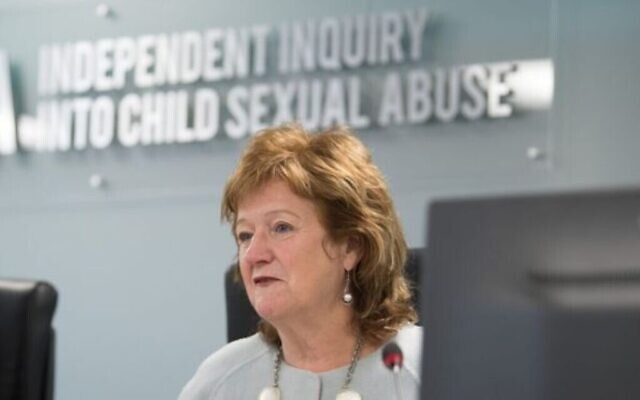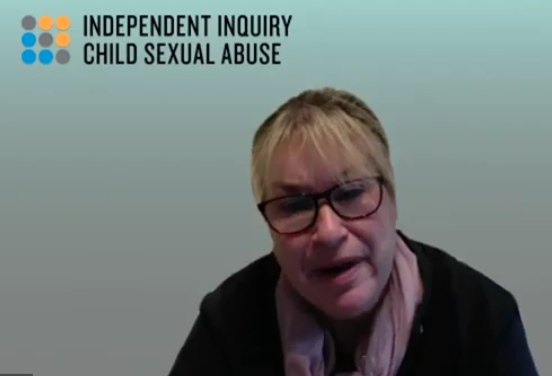‘Shocking failures’ among Jewish groups to prevent child abuse, inquiry finds
Inquiry hears concerns about varying child protection policies in Jewish organisations and potential for abuse in yeshivas.
Religious organisations are failing in their moral duty to prevent child sexual abuse, a damning inquiry has found, with some Jewish organisations having no child protection policy at all.
Victim-blaming, an absence of discussion around sex and sexuality, abuse of power by religious leaders and discouraging external reporting are among the “shocking failures” outlined in the report from the Independent Inquiry into Child Sexual Abuse (IICSA).
The Child Protection In Religious Organisations And Settings report examined evidence from 38 religious organisations with a presence in England and Wales.
Two recommendations are made, that all religious organisations should have a child protection policy and supporting procedures, and that the Government should legislate to amend the definition of full-time education to bring any setting that is the pupil’s primary place of education within the scope of a registered school.
The inquiry heard shocking examples of child sexual abuse, and a failure to confront it, with perpetrators hiding behind an unwillingness to involve secular authorities.
The child protection policies of major Jewish communal organisations came under the spotlight, with a number of umbrella bodies such as United Synagogue, Chabad Lubavitch, and Masorti named as taking the “positive step” of a centralised child protection policy.
But other religious groups did not have such a policy at the time of the inquiry’s hearings last year, including the strictly-Orthodox Union of Orthodox Hebrew Congregations (UOHC).
The inquiry said that there was “a mismatch between the organisation’s stated position and its actual practice in responding to allegations of child sexual abuse.”
The body’s representative, Rabbi Jehudah Baumgarten, told the inquiry that the rabbinate was clear child sexual abuse must be reported to the relevant authorities.
But the inquiry noted that in 2013, the UOHC’s then-chief Rabbi Ephraim Padwa was recorded undercover dissuading an abuse victim from reporting to the police – and that eight years later, a child protection policy was still not in place. One has now been created.
Among the shocking examples of child sexual abuse heard by the inquiry included the crimes of paedophile Todros Grynhaus, a prominent member of the Manchester Charedi community.
Grynhaus was convicted of sexually abusing two victims, one of whom was told by prominent individuals of the community that she could not inform the police, because it would make her a ‘moiser’ and she would be shunned.
She was offered £5,000, while her abuser was offered “counselling” for his crimes. A trial judge found when sentencing Gryhaus to 13 years and two months in prison in 2013 that he had “felt able to rely on a prevailing attitude of insularity,” and believed his victims would be unable to complain about him.
Unregulated yeshivas were flagged as potential areas where children could be vulnerable to abuse. The culture of child protection in many yeshivas was “weak”, heard the inquiry.
It heard secular authorities including Ofsted and Hackney Council clashed with the UOHC – which does not have direct control over yeshivas – over the issue, with some members of the community believing “formal oversight would lead to them having to teach matters they consider to be contrary to their faith.”
The inquiry also heard that there was confusion around when, and what level, of DBS checks were required to work with children.
Reshet, a Jewish youth organisation, told the inquiry that “you can be in a position of influence without necessarily having any kind of rabbinical status in the Jewish community”, with some individuals involved in working in synagogues who it said ought to receive a level of check they currently cannot receive.
Professor Alexis Jay, chairwoman of the Inquiry said: “Religious organisations are defined by their moral purpose of teaching right from wrong and protection of the innocent and the vulnerable.
“However when we heard about shocking failures to prevent and respond to child sexual abuse across almost all major religions, it became clear many are operating in direct conflict with this mission.
“Blaming the victims, fears of reputational damage and discouraging external reporting are some of the barriers victims and survivors face, as well as clear indicators of religious organisations prioritising their own reputations above all else.
“For many, these barriers have been too difficult to overcome.
“We have seen some examples of good practice, and it is our hope that with the recommendations from this report, all religious organisations across England and Wales will improve what they do to fulfil their moral responsibility to protect children from sexual abuse.”

Thank you for helping to make Jewish News the leading source of news and opinion for the UK Jewish community. Today we're asking for your invaluable help to continue putting our community first in everything we do.
For as little as £5 a month you can help sustain the vital work we do in celebrating and standing up for Jewish life in Britain.
Jewish News holds our community together and keeps us connected. Like a synagogue, it’s where people turn to feel part of something bigger. It also proudly shows the rest of Britain the vibrancy and rich culture of modern Jewish life.
You can make a quick and easy one-off or monthly contribution of £5, £10, £20 or any other sum you’re comfortable with.
100% of your donation will help us continue celebrating our community, in all its dynamic diversity...
Engaging
Being a community platform means so much more than producing a newspaper and website. One of our proudest roles is media partnering with our invaluable charities to amplify the outstanding work they do to help us all.
Celebrating
There’s no shortage of oys in the world but Jewish News takes every opportunity to celebrate the joys too, through projects like Night of Heroes, 40 Under 40 and other compelling countdowns that make the community kvell with pride.
Pioneering
In the first collaboration between media outlets from different faiths, Jewish News worked with British Muslim TV and Church Times to produce a list of young activists leading the way on interfaith understanding.
Campaigning
Royal Mail issued a stamp honouring Holocaust hero Sir Nicholas Winton after a Jewish News campaign attracted more than 100,000 backers. Jewish Newsalso produces special editions of the paper highlighting pressing issues including mental health and Holocaust remembrance.
Easy access
In an age when news is readily accessible, Jewish News provides high-quality content free online and offline, removing any financial barriers to connecting people.
Voice of our community to wider society
The Jewish News team regularly appears on TV, radio and on the pages of the national press to comment on stories about the Jewish community. Easy access to the paper on the streets of London also means Jewish News provides an invaluable window into the community for the country at large.
We hope you agree all this is worth preserving.























